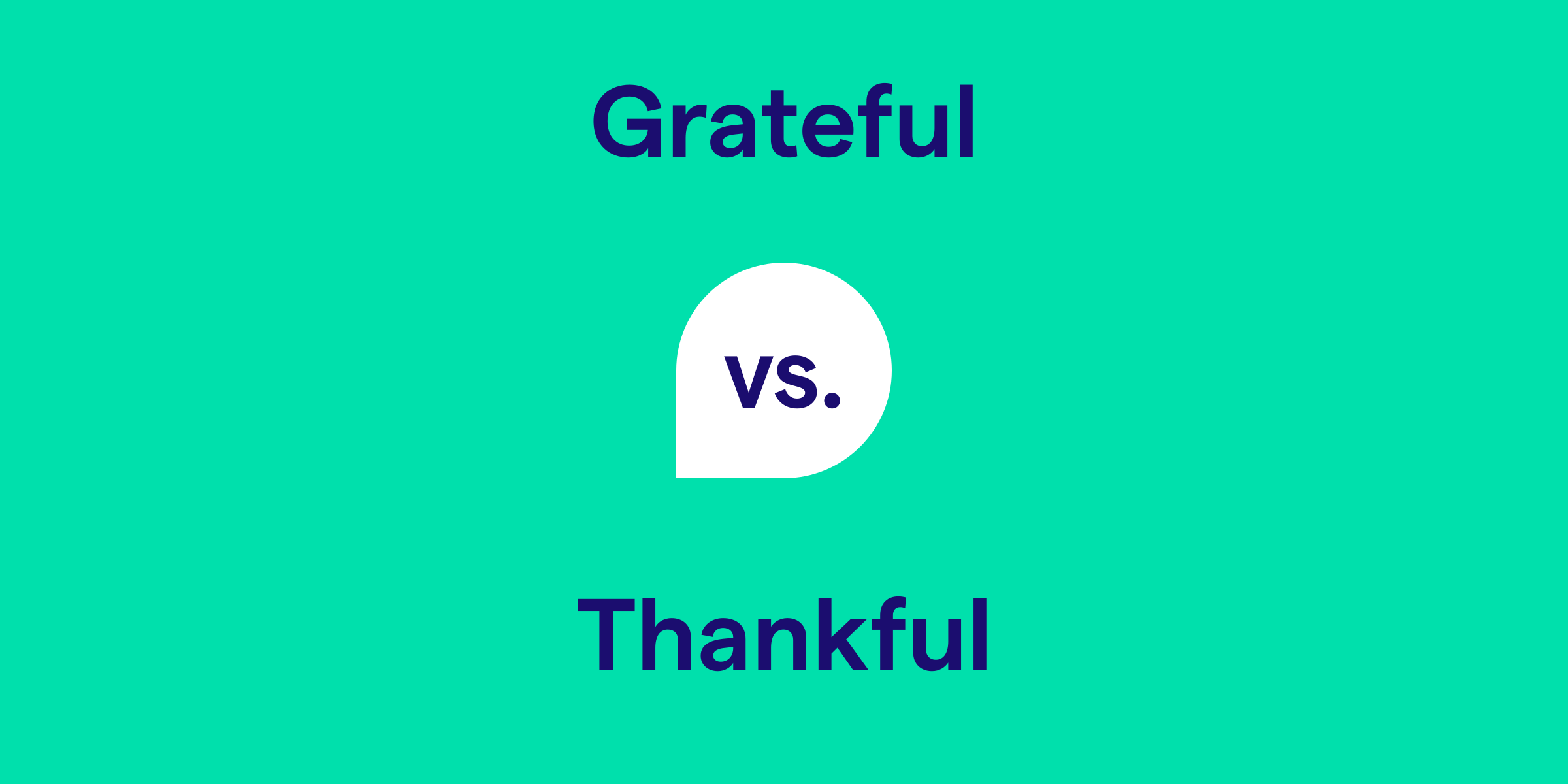Grateful vs. Thankful: What's the Difference?
Understanding the nuance between being grateful and being thankful can enhance the way we express our feelings. Grateful often implies a deeper, more internalized feeling of appreciation, usually for something specific and tangible, and can also reflect a general state of thankfulness. On the other hand, thankful is typically used to show appreciation for benefits received, often in response to another person's actions, gestures, or kindness.

How do you use the word grateful in a sentence?
Grateful is used when you want to express heartfelt appreciation and thankfulness. This emotion often carries depth and acknowledges the positive impact something or someone has had on one's life. Use grateful for experiences or gifts that have a significant emotional resonance or when a sense of indebtedness is felt.
Examples of grateful in a sentence
- I am truly grateful for the overwhelming support I received during challenging times.
- He felt grateful to have such a close-knit group of friends.
- She was grateful for the quiet moments that gave her peace.
How do you use the word thankful in a sentence?
Thankful is used to express appreciation, usually in a more casual or immediate context. It often pertains to being relieved or happy about a positive outcome, and can be used for expressing gratitude for assistance or convenience. Use thankful for situations where you are acknowledging a benefit or a favor received.
Examples of thankful in a sentence
- I am so thankful that you could make it to my birthday party.
- She was thankful for the quick response from the customer service team.
- We were thankful for the sunny weather on our wedding day.
Grateful and thankful definitions, parts of speech, and pronunciation
Grateful definition:
Feeling or showing an appreciation for something done or received.
Grateful parts of speech:
Grateful pronunciation:
Pronounced as /ˈɡreɪt.fəl/, the word grateful has two syllables with stress on the first.
Thankful definition:
Pleased or relieved and expressing gratitude.
Thankful parts of speech:
Thankful pronunciation:
Pronounced as /ˈθæŋk.fəl/, the word thankful has two syllables with stress on the first.
Feeling or showing an appreciation for something done or received.
Grateful parts of speech:
- Adjective: He was grateful for the chance to prove himself in the new role.
Grateful pronunciation:
Pronounced as /ˈɡreɪt.fəl/, the word grateful has two syllables with stress on the first.
Thankful definition:
Pleased or relieved and expressing gratitude.
Thankful parts of speech:
- Adjective: She was thankful the test results were positive.
Thankful pronunciation:
Pronounced as /ˈθæŋk.fəl/, the word thankful has two syllables with stress on the first.
Grateful vs. thankful in a nutshell
While both grateful and thankful are expressions of appreciation, grateful carries a more profound sense of emotional gratitude and is often used in acknowledgment of significant impact. On the other hand, thankful is more immediate and situational, usually pertaining to a specific favor or relief. These subtleties can influence how we choose to voice our gratitude in different contexts, allowing for a richer emotional communication.
Get AI Writing Assistance Wherever You Type
Make sure your vocabulary is on point and every punctuation mark is in the right place, no matter where you’re working. Grammarly works across more than 500,000 websites and apps so you can improve your writing without copying, pasting, or breaking focused.

More Commonly Confused Words
Interest piqued? Pore (not pour) over other commonly confused words to help your writing reach peak (not peek) performance.